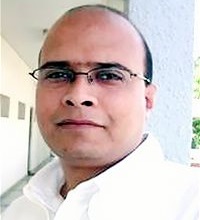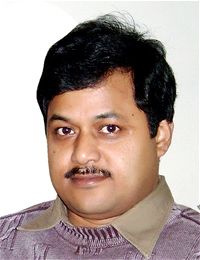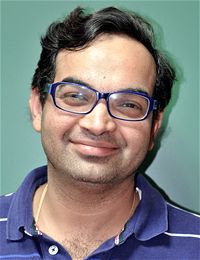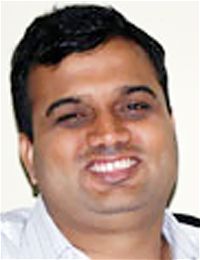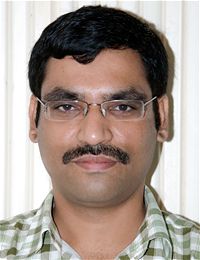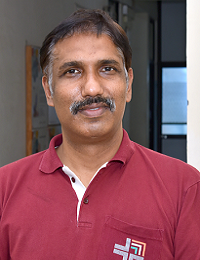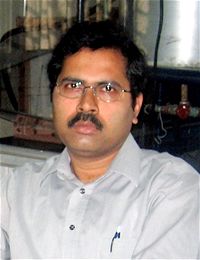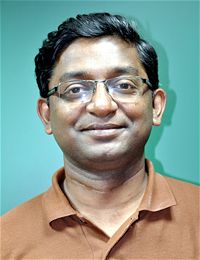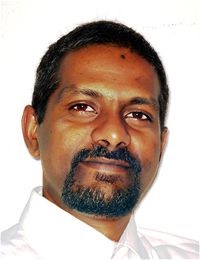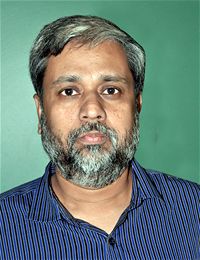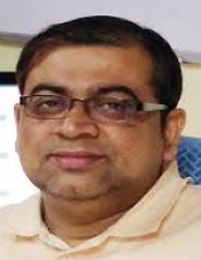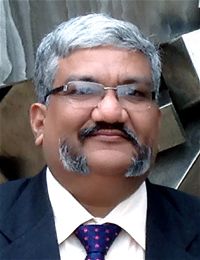Welcome Message

Welcome to the Department of Mechanical Engineering at IIT Kanpur. We started our journey in the year of 1960. Over the last six decades, we have grown our expertise and competence in the core Mechanical Engineering curriculum and research....
- Read More
-Prof. Ashish Dutta
Head, Department of Mechanical Engineering
Featured Faculty
Syllabus:Introduction, review of thermodynamics, adiabatic flame temperature, chemical equilibrium, chemical kinetics, steady-state approximation, partial equilibrium, mass transfer, conservation equations and transport properties, laminar premixed flame, flame speed, ignition, quenching, flammability limits and stability, laminar non-premixed flame, conserved scalar concept, estimation of flame height, burning rate for a single droplet, turbulent premixed flames, Borghi diagram, flame height for turbulent nonpremixedflames, liftoff and blowout phenomena, flame stabilizationin turbulent flows,...
Credits:9
Syllabus: Introduction to modeling of dynamical systems. Single Degree of Freedom Systems – Free undamped vibration, Free damped vibration, Forced vibration, Transmissibility, Convolution method, Mechanisms of damping. Two Degree of Freedom System (undamped vibration only) – Free and forced vibrations, vibration absorber. Multi Degree of Freedom Systems (undamped and proportional damping) – Matrix methods, Modal analysis. Approximate Methods. Vibration of continuous systems (free vibration only). Introduction to controls. Review of Laplace transforms. Block diagrams. Root locus method. Stability – Routh-Hurwith criterion, Nyquist plots. Bode plots. Controller performance and types. Steady state errors and constants. Types of feedback control systems – Derivative error compensation, Integral error compensation, Proportional error compensation. Modern control. Digital control.
Prerequisites:ESO 209
Syllabus: Kinematic pairs, diagrams and inversion. Mobility and range of movement. Displacement, velocity and acceleration analysis of planar linkages. Dimensional synthesis for motion, path and function generation. Dynamic force analysis, flywheels. Inertia forces and balancing for rotating and reciprocating machines. Cam mechanisms, Cam profile synthesis. Gears and gear trains.
Credits:7
Prerequisites:ESO 209
Syllabus:Phase-change Thermo-physics, Equations of state, Phase diagrams, Phasestability and spinoidals, Interfacial tension, Free energy, Wetting and hysteresis.
Credits:9
Syllabus: Introduction to design of systems and machine elements; Modes of failure, strength, stiffness and stability; Failure theories; Fatigue failure; Probabilistic approach to design; Design of Bolted and Welded joints, Helical compression springs and leaf springs, Spur and Helical gear sets; Selection of Rolling contact bearings; Design of shafts. Lab sessions: Detailed design of the above machine elements starting functional specifications to final sizing; Design of a subsystem involving multiple machine elements. Introduction to use of techniques like FEM for design.
Prerequisites:ME 231
Highlights
- List of candidates from CFTI selected for provisional admission for PhD program in Mechanical Engineering for the session 2025-26-I.New
- Department of Mechanical Engineering, IIT Kanpur Presents 2nd Mechanical Sciences Young Investigators Meet MSYIM 2025 17-19 March 2025. Visit the website for more details: MSYIM 2025
- Guidelines for the Application of Institute Post Doctoral Fellows
- Applications invited for direct PhD students for the semester 2025-26-I. Last date of application February 20, 2025
- List of Selected candidates: Winter PG Admission 2024
- Candidates Shortlisted for Interview: Winter Admission PhD Programme 2024
- Dates for PhD winter admission 2024 written exam and interviews: November 27-28, 2024
- Reporting date of all new PG students: Jul 18 - 19, 2024
- Departmental Orientation of new PG Students: Jul 20, 2024, 2:30 PM onward, Venue: L16
- PhD admission (Round 2): Application form available here. Last date of application: 4th July 2024. Online written test: 7th July, 2024, Online/Offline Interviews: 10th July, 2024
- M.Tech. Admission (through COAP): Cutoff score, Vacancy and fee paid data
- Selected candidates for provisional admission in PhD programme
- Selected and WL candidates for MS(R) admission (Institute-sponsored category) Round 1
- Rolling advertisement for faculty recruitment






